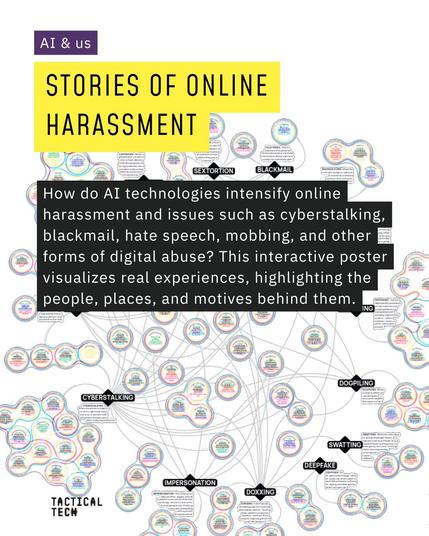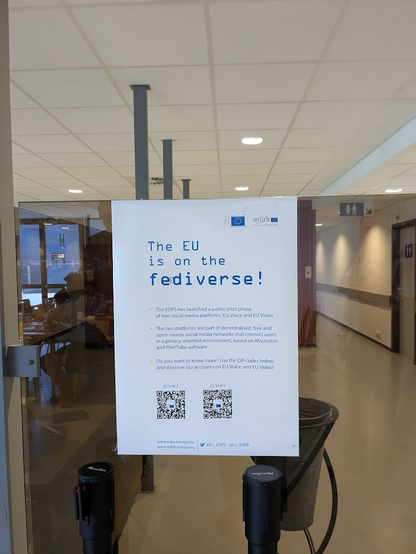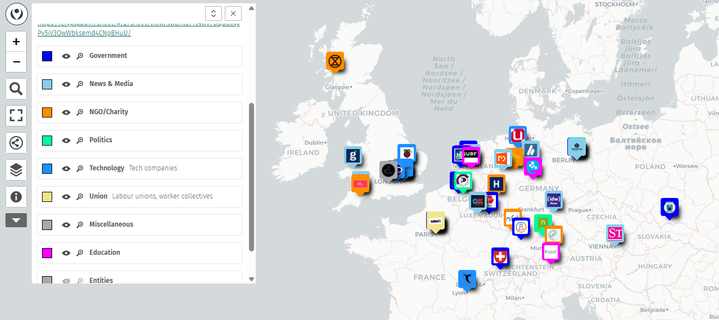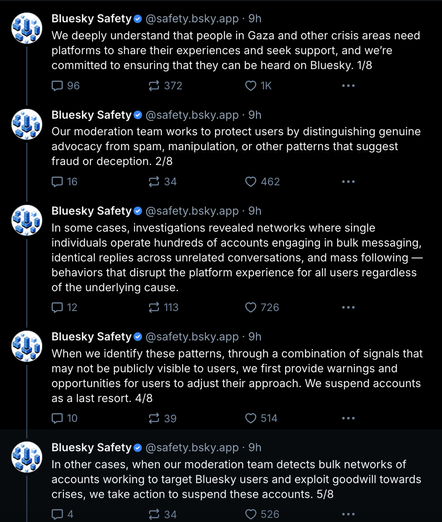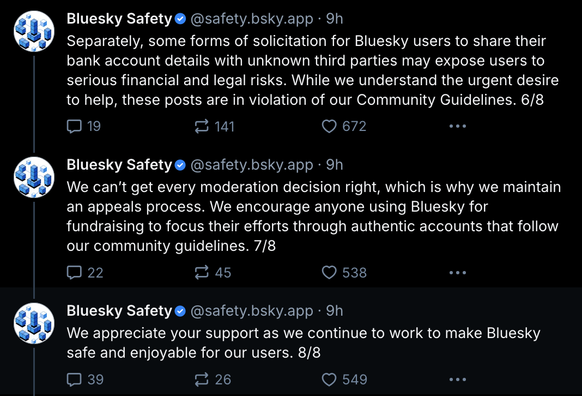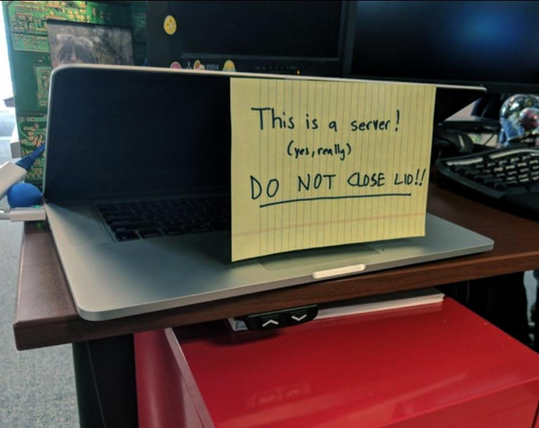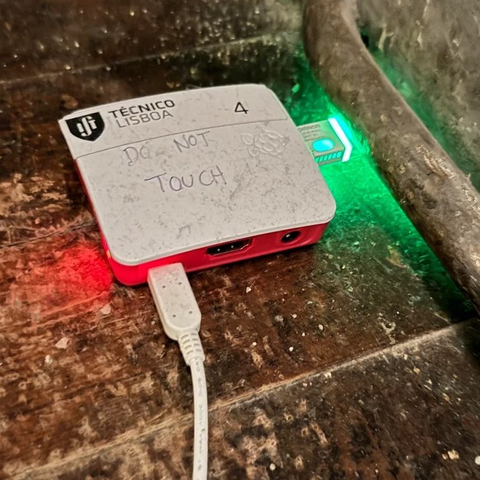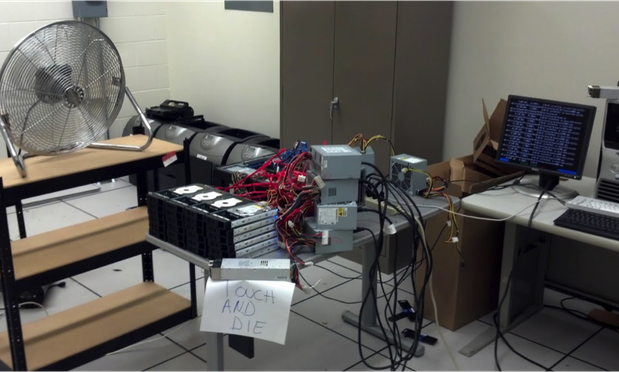Decentralisation as a shifting mental framework
Programming note: every week I send out an email newsletter. It contains all the articles I published that week, as well as an additional essay that has been not been published elsewhere yet. This is a republication of last week’s essay I send out. If you’re interested, subscribe below to get all the updates directly in your inbox every week!
As decentralised social networks grow and evolve over time, so does the meaning of the word decentralisation. People do not understand a meaning of a word in a vacuum, they form an understanding of what a word means based on their think other people think a term means. The term decentralisation is a good example of this: it is clearly an important term to the communities that make up networks like the fediverse. But the meaning of the term decentralisation has shifted over time. Communities take on a shared mental framework to understand a technology. Once a framework has been established, changes to that shared framework are slow, and can happen due to forces of other communities who have a different shared perspective.
The fediverse, and the networks that it grew out of, are decentralised social networks in two different ways: they are decentralised in a technical description of how the network architecture looks. But the fediverse is also decentralised in the sense that this became a core part of the identity of the network. For a variety of reasons, as the fediverse grew and matured, being decentralised became a core way how people on the fediverse understood the network themselves. When Elon Musk took over Twitter, it gave a strong validation of the idea that centralised ownership of social networking is bad, and thus that good social networks should be decentralised.
Over time, the meaning of the term ‘decentralisation’, as understood by people on the fediverse, grew more diffuse. Other characteristics of the network became conflated with the idea of the network being decentralised. Traits of centralised platforms that people deemed bad, such as a single algorithmic timeline controlled by an oligarch, became a template for how an alternative social network should do the opposite: only have a timeline where the content displayed is fully controlled by the user. The boundaries blurred between features resulting from a decentralised networking architecture versus those from human-focused product design. It is totally possible to create a decentralised social networking platform with only algorithmic timelines. But the connection between fediverse platforms largely only having ‘following’ feeds and the network being decentralised was regularly implied.
A network like the fediverse has an architecture that is easy to recognise as being decentralised: there are multiple independent servers that are all talking to each other, without one central entity. But there are other ways to create social networks that are decentralised, using a different architecture. Nostr is a good example of a decentralised social network that operates in a significantly different way, while also being clearly decentralised.
For the fediverse community, the mental model of decentralised networks such as the fediverse itself, but also email, became more dominant. There was less space to consider other ways to design a social network that is also decentralised. The size difference between the fediverse and the much smaller Nostr network made other alternatives easy to brush aside. But the growth of Bluesky and the ATmosphere network changed this dynamic.
The goal of Bluesky and ATProto is to create a decentralised social network, but with different characteristics and goals than the fediverse and ActivityPub have. For people on the fediverse, decentralisation became the main way how they analysed this competing network. As Bluesky is by far the largest app on the ATProto network, by multiple orders of magnitude, Bluesky not actually being decentralised became a common criticism. I made a similar argument in fall 2024, about how Bluesky has not meaningfully distributed power due to how clustered the people are around a single app. However, that is something different than the technological network architecture being (de)centralised. These criticisms became intertwined with each other, especially from the fediverse side.
In recent weeks, people have made some significant progress in using Bluesky (in technical terms: engaging with posts with Bluesky’s lexicon) with infrastructure that is entirely independent from the Bluesky company. This demonstrates the network being decentralised in a meaningful way. But as the term ‘decentralisation’ has become so intertwined with other meanings, both regarding other network architecture as well as the spread of the user base, that conversations around these developments became hopelessly confusing. The achievement of using Bluesky without using infrastructure owned by Bluesky PBC became solely analysed through the frame of “is the network decentralised”.
In all this discourse, it has become lost that decentralisation is a description of a network topology, and not an intrinsic Good. People do not actually care about decentralisation itself. Decentralisation is valuable because it enables other properties, such as network resilience, and are more resistant to capture by oligarchs.
Within the ATProto developer community, the discourse that essentialised decentralisation led to a counter reaction, where decentralisation is not seen as a useful term anymore. Instead, other descriptors should be used, to consider specific features that the network enables. While the community seems largely in agreement that decentralisation has lost a lot of its usefulness as a way to analyse the network, there is less consensus on what other factors the network should be judged on.
As an observer of both networks this makes the current situation particularly interesting. One developer community seems to come to an agreement that one mental framework has lost some of its use, while the other developer community has not done so. Furthermore, it is not clear yet what framework should take its place instead. Is it a framework of analysing a network by its possible failure modes, or something else entirely?
#fediverse
https://fediversereport.com/decentralisation-as-a-shifting-mental-framework/
